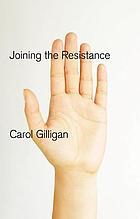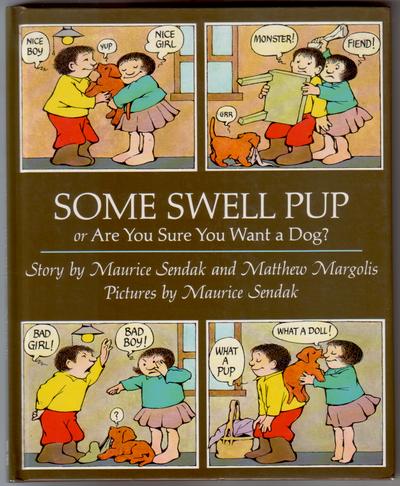As an instinctive anti-essentialist (at least when it comes to gender) I remember being a bit surprised that Gilligan's arguments would be taken that way -- since that wasn't the sort of psychological landscape I saw her outlining in Pleasure. Weaving together reflections on canonical female truth-tellers (drawing on her background in English literature) and her psychological research, Gilligan is primarily interested in how individuals -- of any gender -- speak or stay silent about what they know. Drawing on theories of developmental psychology, psychoanalysis, a feminist analysis of the kyriarchy, Gilligan argues that human beings are born into the world with a full range of psychological resources which are then curtailed by gender policing which in turn causes psychic trauma.
Drawing parallels between preschool age boys and middle school age girls, Gilligan suggests that at points when growing beings are initiated into new levels of patriarchal control, we see increased instances of acting-out and destructive behavior (toward the self and others). Because girls experience this trauma at a later developmental stage than boys, she argues, women as a population are more likely to be able to articulate what they have lost in the initiation process, and to have the resilience to push back successfully. Men, she theorizes, can often identify the trauma of being forced into male-stereotyped behavior, but because it happened so early in childhood have a very difficult time accessing memories of their humanity before certain ways of being were rendered off-limits due to gendered expectations.*
Which brings us to Gilligan's latest work, a slim volume titled Joining the Resistance (Polity Press, 2011). Half reflection on her body of work, half call to action, Resistance shares some of the highlights of Gilligan's research in an accessible way and makes a passionate appeal for re-connecting with the parts of our humanity that the oppositional gender-binary has robbed from us. "Our ability to love and to live with a sense of psychic wholeness hinges on our ability to resist wedding ourselves to the gender binaries of patriarchy," she argues, in language that should make any feminist worth her salt jump for joy (109). This recalls the research Phyllis Burke cites in Gender Shock which suggests that the individuals least invested in maintaining oppositional gender roles are those most adaptive and resilient in the face of hardship and trauma.
Gilligan, following such humanist psychologists and philosophers as Eric Fromm, Abraham Maslow, and Carl Rogers, pushes us to reconsider our assumptions concerning the fundamental nature of humanity. While resisting any simplistic arguments that human nature is "good" (vs. "bad"), she suggests that we might reconsider widespread assumptions about human self-interest and cruelty. We might do well, she suggests, to listen to those who resist inflicting violence and trauma -- and rather than frame them as exceptions to the rule, think of them as survivors of an indoctrination process:
I am haunted by these women, their refusal of exceptionality. When asked how they did what they did, they say they were human, no more no less. What if we take them at their word? Then, rather than asking how do we gain the capacity to care, how do we develop a capacity for mutual understanding, how do we learn to take the point of view of the other or overcome the pursuit of self-interest, they prompt us to ask instead: how do we lose the capacity to care, what inhibits our ability to empathize with others, and most painfully, how do we lose the capacity to love? (165).With this as her guiding question, Gilligan challenges us to think about how we might re-formulate education (and society more broadly) to support -- rather than destroy -- "the capacity to love." This brings together notions of education, citizenship, social justice, and peace activism, in a combination that will be familiar to many progressive, counter-cultural educators who have been arguing for holistic education since at least the mid-1960s. One of my disappointments with Resistance was that Gilligan didn't acknowledge or engage with that counter-cultural community (of which there is a fairly active virtual and real-life network here in the northeast United States which she calls home!) within the text. I would have appreciated some evidence that she is at least aware of the dissident educators of the past sixty years (or more) who have insisted that this "feminist ethic of care," this more holistic vision of humanity, be central to our pedagogy as we nurture into adulthood the next generation(s). But one can't have everything!
I'll leave you with one of my favorite passages from the book, which I posted on Tumblr last week with the comment that, while "secure relationships" are obviously not limited to parent-child connections, this is a strong argument that if we want to strengthen marriage and families, we ought to be legalizing (and advocating for!) poly relationships:
The ideal environment for raising children turns out to be not that of the nuclear family but on in which there are at least three secure relationships (gender nonspecific), meaning three relationships that convey the clear message: 'You will be cared for no matter what.' (53)I also want to point out that this is a really strong argument for those of us who plan on not parenting to get involved with people who are parents. Because by being a "secure relationship" person in the life of a child, or children, even (especially?) when they aren't our direct dependents, means we're creating a world in which more adults will be psychologically whole, secure persons. And that's a better world for us all.
*At the very end of Resistance, Gilligan brings in recent research on adolescent boys, which suggests that they, like the adolescent girls whom Gilligan has spent her professional life studying, experience the dissonance and limitations of patriarchy. I'd love to see her (and others) develop this further.






